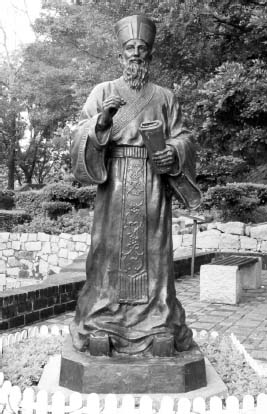Confucianism, the Literati, and Chinese Imperial TraditionsLeadership, Authority, and Religious Roles |
What is a Mandarin? |
“Mandarin” comes from the Sanskrit term mantri, meaning “minister or counsellor.” It became common especially after the sixteenth century, when Europeans came into more regular contact with Chinese culture. Europeans used the term to refer to China’s social elite, so that “Mandarin” was in effect a synonym for “Literati.” Technically, that meant all the bureaucrats who belonged to the nine administrative ranks of imperial government or “civil service.” When the Italian Jesuit missionary Matteo Ricci (1552-1610) determined to dedicate himself to working in China, he set out to steep himself in classical Confucian learning. An important feature of his reputation is that he was so successful that he virtually became a Mandarin. In popular usage, the term Mandarin has come to refer to Asian social and cultural elites and governmental administrators in general. Mandarin is also the name given to one of the most important and widely spoken of the many Chinese dialects.

Matteo Ricci (1552-1610) was an Italian Jesuit missionary who studied Confucianism and became so learned that he was considered a kind of honorary Mandarin.
